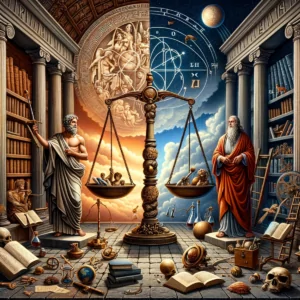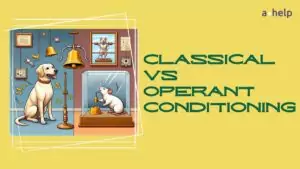 According to famous French postmodernist philosopher Jean Baudrillard, the consumerist choice today is defined mostly not by the price of a certain product, but by its symbolically added value. This added value depends on the symbol that it signifies; the more attractive the symbol is, the higher the added value is, which can surpass production costs 10 times and more. Currently, the most common value complementing goods being sold is happiness. The modern lifestyle demands people to be ever-smiling, active, and communicative; more and more brands gently hint or directly say their products can make their customers happier. At the same time, we all know copy book maxims that claim happiness lies within ourselves, and that material goods can bring only temporary satisfaction. Considering that people tend to throw themselves from one extreme to another, significant discrepancies between these two types of welfare must be pointed out in order to understand what to give preferences to.
According to famous French postmodernist philosopher Jean Baudrillard, the consumerist choice today is defined mostly not by the price of a certain product, but by its symbolically added value. This added value depends on the symbol that it signifies; the more attractive the symbol is, the higher the added value is, which can surpass production costs 10 times and more. Currently, the most common value complementing goods being sold is happiness. The modern lifestyle demands people to be ever-smiling, active, and communicative; more and more brands gently hint or directly say their products can make their customers happier. At the same time, we all know copy book maxims that claim happiness lies within ourselves, and that material goods can bring only temporary satisfaction. Considering that people tend to throw themselves from one extreme to another, significant discrepancies between these two types of welfare must be pointed out in order to understand what to give preferences to.

✅ AI Essay Writer ✅ AI Detector ✅ Plagchecker ✅ Paraphraser
✅ Summarizer ✅ Citation Generator
Material goods, often seen as the most available avenues to happiness, are relatively easy to obtain; the only obstacle that may prevent one from taking an item into possession is its price. Considering that mass-culture endows material goods with metaphysical or abstract meanings, purchasing products are almost equivalent to obtaining those qualities, personality traits, or other values these goods symbolize (Fodder). To some extent, this explains the phenomenon of consumerism: it is easier to pay money for an item that symbolizes, for example, self-confidence, than to make efforts to develop this quality in oneself. Material goods stimulate people to seek easy decisions. At the same time, the non-material factors (or intangible benefits) of happiness—friendship, a sense of beauty, a sense of humor, calmness—do not have an estimated price and are true, compared to their simulations; thus, one cannot buy them, but only experience or learn them, which makes them difficult and discouraging to obtain.
Even though material things can make our everyday lives easier and help us organize our time and efforts rationally, the feeling of satisfaction that material goods can provide a person with is temporary, and in most cases, lasts for a relatively short period of time. One of the reasons why this happens is that since products are endowed with certain values by their vendors, as soon as other more “valuable” items appear on the market, individuals may feel inferior because of possessing “less advanced” goods (Limbo). This causes them to bend over backwards to purchase the latest products, that in their turn, will become outdated rather soon—this creates a vicious cycle of consumption. Intangible benefits remind of habits; once developed, they can remain with an individual for the rest of their lives, increasing its quality. Buddhist monks make the best possible example for this thesis; while having almost nothing in possession, they remain one of the most peaceful-minded and fulfilled people in the world.
Material goods are as easily lost as obtained: malfunctions, loss, theft, and other misfortunes easily affect the material welfare of an individual who connects their happiness only with items they possess. At the same time, non-material factors of happiness cannot be lost so easily; in most cases, a person must undergo severe psychological pressure or go through various life obstacles to change in a negative way.
Even though material items can make our lives easier to some extent, connecting one’s happiness to possessions would be reckless. Material goods are easier to obtain; however, they are only simulations in comparison to the original concepts they imitate. Intangible benefits are more difficult to obtain, as one needs to learn them and develop them as habits; however, this fact facilitates their inalienability and constancy, compared to material goods that are fulminant easily-alienated. Thus, while owning material goods and using the benefits they provide, people should strive to develop inner ways of happiness.
References
Fodder, Jerry C. “Consumerism is a Fraud.” Philosophy Guide. N.p., 11 Sept. 2011. Web. 24 Dec. 2013.
Limbo, Ria. “Added Values and Illusionary Welfare.” Philosophy Guide. N.p., 30 July 2012. Web. 24 Dec. 2013.
Follow us on Reddit for more insights and updates.





Comments (0)
Welcome to A*Help comments!
We’re all about debate and discussion at A*Help.
We value the diverse opinions of users, so you may find points of view that you don’t agree with. And that’s cool. However, there are certain things we’re not OK with: attempts to manipulate our data in any way, for example, or the posting of discriminative, offensive, hateful, or disparaging material.
Comments are closed.